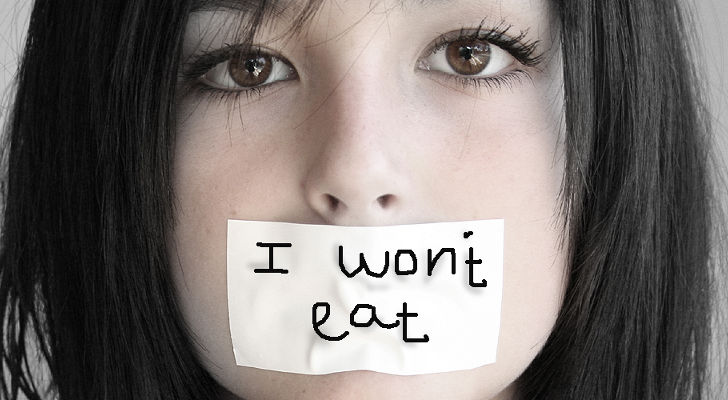When Eating Becomes a Problem
I always say balance is the key to a healthy life. All of us don’t necessarily eat correctly ALL the time, but when we eat out of habit or find ourselves eating for reasons other than hunger, we may possibly be prey to an Eating Disorder. Other than the well-publicized eating disorders, there are numerous other ones that are less familiar but are equally dangerous. In this article we discuss the many types of eating disorders, their warning signs, possible causes and how to try managing it.
Definitions of a few eating disorders:
Anorexia Nervosa- (not to be confused with Anorexia which is simply a Lack of appetite) There are 4 criteria that need to be present to achieve a diagnosis: (1) failure to maintain body weight over a minimal normal weight for age and height, (2) the person must experience intense fear of gaining weight or becoming fat, even though underweight, (3) the person must have a disturbance in the way his or her body weight, size, or shape is experienced, (4) amenorrhea must be present. Amenorrhea is the absence of at least three consecutive menstrual cycles.
Bulimia Nervosa- Bulimia Nervosa is characterized by cyclical bingeing and purging episodes.
Binge Eating Disorder (BED)
Characterised by recurrent episodes of binge eating that occur twice weekly or more for a period of at least six months. People with BED often present as either overweight or obese.
Anorexia Athletica
Most commonly found in pre-professional and elite athletes, though it can exist in the general population as well. People suffering from Anorexia Athletica may engage in both excessive workouts and exercising as well as calorie restriction.
Orthorexia
An obsession with healthy eating to the
extent that diet becomes too restrictive. Exercise Bulimia- Overeating and then over-exercising to ‘purge’ the body.
Bigorexia
Bodybuilders going to extreme and dangerous lengths to build muscle (including use of anabolic steroids).
Eating disorder not otherwise specified (EDNOS)- People who exhibit symptoms of eating disorders but that can’t be specifically classified.
Warning signs that you may be heading in that direction:
Emotional eating, because you feel bored, depressed, lonely or angry, food is used here to distract you, suppress feelings or replace an ‘emptiness’; Eating out of habit is another sign; another is Using food as a reward, although this has been ingrained in our culture it is dangerous as reward is typically strongly associated with guilt, especially if food is used as a reward for eating well or sticking to a diet as the more one rewards themselves with forbidden food, the more guilt the experience, which may lead to emotional eating; Feeling unable to resist certain foods could also be a warning , rather eat in moderation and be aware of the consequences of what one is consuming, instead of restricting and then binge eating when given the opportunity; lastly the feeling of being out of control when eating is a sign, these people tend to feel out of control in other areas of their lives as well and eat accordingly.
Possible Causes:
There are many possible causes for eating disorders and here are just a few: Genetics (but is not inevitable, lifestyle and environment play a big role here); unbalanced brain chemicals may lead to emotional eating; hormones and stress may increase your appetite as well as fat storage; nutrient deficiencies may lead to cravings and uncontrolled cheat eating which may further lead to guilt and emotional eating; learned behaviors may run in your family; lastly underlying emotional issues, these include a broad ray of abuse, neglect, feelings of guilt or inadequacy which may lead to emotional eating.
Managing your emotional eating:
All of us are guilty of eating the wrong foods occasionally but if this persists it is important to figure out the underlying cause. Doctors can test your hormone and neurotransmitter levels and if insufficient may supplement. Psychological strategies may also help, such as distracting yourself from your urge to eat through constructive activities, identify cues that stimulate your urge to eat and try and avoid or prepare yourself for these situations and stimulants, keeping a food diary including the way you felt before and after eating and why may also make you aware of the cues that stimulate your eating as well as times and sources of the problem. These techniques may help you understand why you are eating the way you do and allows you to intervene appropriately. However, if you feel that you cannot manage it, it is best to seek the help of a health care professional that can refer you to the right sources of information as well as intervention such as a team of doctors, dieticians, psychologists, etc.
By: Lara Mountjoy
Article by @FuturelifeZA





You must be logged in to post a comment.
You must log in to post a comment.